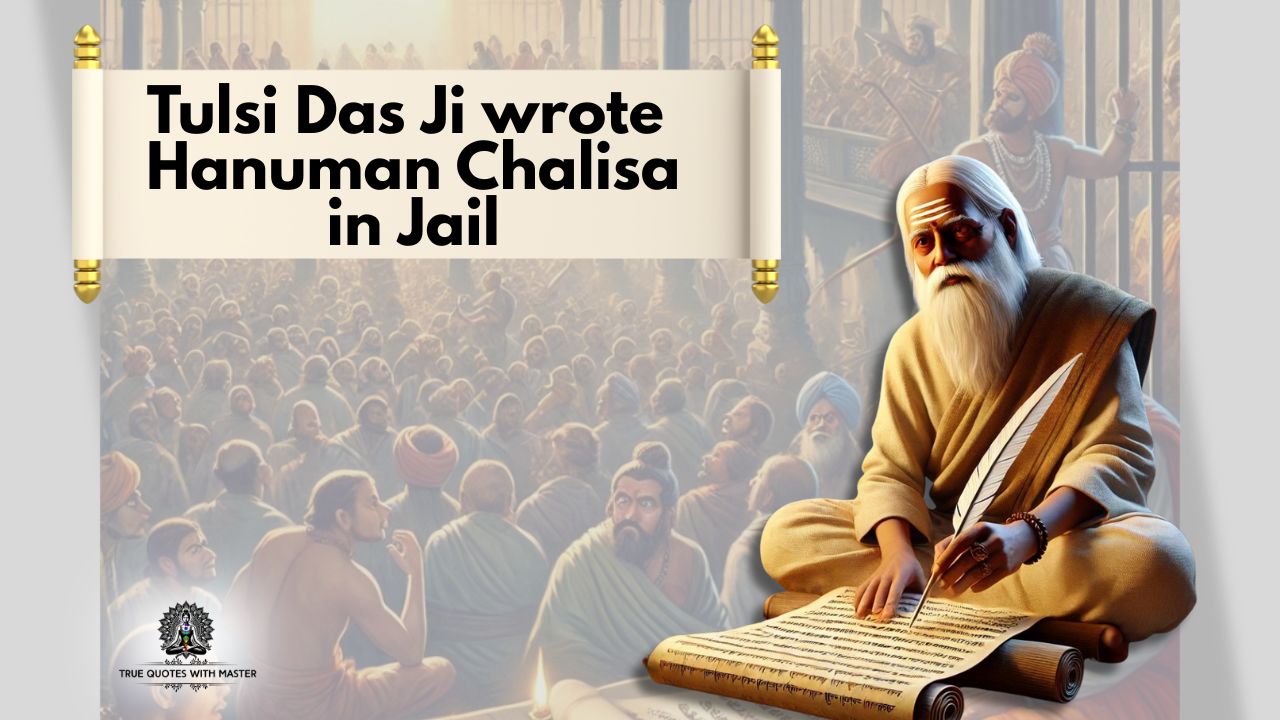
A Saint vs. An Emperor: How Hanuman Ji Protected Tulsi Das Ji
There came a time in Tulsi Das ji’s life when all the people around him wished to attend the spiritual lectures he gave. The way he educated people about the life of Lord Ram made people eager to listen daily. Also, the Holy Scripture Ramcharitmanas, written by Tulsi Das ji under the mercy of Lord Ram, made people feel devoted and attached as they read those scriptures. It was easy to understand, and it narrated the life of Lord Ram with deep emotions and faith.The rapid rise to fame spread widely, diminishing the value of other revered saints' knowledge.
As Tulsi Das ji’s popularity and praise grew in society, the news reached King Akbar. Akbar called Tulsi Das ji for a meeting and asked him to write a holy scripture praising his life, just as he had written about Lord Ram.
Akbar wished to be seen as a saint, wanting everyone to praise him for his deeds and spread his religion, Din-e-Elahi. He decided that Tulsi Das ji, being the best person to write such a scripture, should write about him.
Akbar was more interested in being seen as a saint than a king. He believed in not differentiating between Hindus and Muslims and had generously donated to society. With this in mind, he wanted Tulsi Das ji to write a holy scripture praising his good deeds in helping others. However, Tulsi Das ji replied to Akbar:
"Akbar, you are mistaken. I am no one to write the Ramcharitmanas. It is all Lord Ram’s great mercy that allowed me to write this scripture. I cannot write about you, as I am fully devoted to Lord Ram."
Upon hearing such words from Tulsi Das ji, Akbar decided to imprison him, ordering his army to put Tulsi Das ji in prison immediately. Akbar imposed a condition on Tulsi Das ji: "Either write a granth about me or agree to be enslaved."
Tulsi Das ji agreed to be enslaved but refused to write a scripture about Akbar. At the age of 96, Tulsi Das ji was imprisoned and remained there for 40 days. He entered deep remembrance of Lord Hanuman, to whom he had been devoted since his childhood, and prayed internally for help to escape this situation.
He began meditating deeply on Lord Hanuman and started writing the Hanuman Chalisa in jail. After completing the Chalisa, he still did not receive the divine vision of Lord Hanuman and requested once more for Hanuman ji to show him his divine sight.
Hanuman ji responded:
"Tulsi Das, you are a great poet who wrote the Ramcharitmanas and other holy scriptures, but you have made a serious mistake in writing my scripture. You started praising me without first praising my Guru. Tulsi, I am nothing without my Guru."
Tulsi Das ji had written the Chalisa beginning with:
“Jai Hanuman Gyan Gun Sagar, Jai Kapis Tihu Lok Ujagar.”
Hanuman ji then corrected Tulsi Das ji, giving him the opening lines from his own mouth, saying:
“Shri Guru Charan Saroj Raj Nij Mun Mukur Sudhar.”
Tulsi Das ji immediately apologized to Hanuman ji for the mistake and began writing the Hanuman Chalisa, this time praising the Guru first.
The Guru holds supreme power; without the Guru, the devotee is nothing. As it is said:
“Teen Lok Navkhand Mein Guru Seh Barda Na Koye, Karta Kareh Na Kar Sake, Guru Kare So Hoye.”
One who receives the mercy of the Guru can directly speak to God, one on one.
Tulsi Das ji then requested Hanuman ji to help him escape the imprisonment of Akbar. Hanuman ji replied, "In Kaliyug, we must follow the instructions of the Almighty, as we cannot directly interfere with humans. But don’t worry, we will send our army to help you."

Soon, thousands of monkeys attacked Akbar’s army. Akbar’s army couldn’t fight the massive army of monkeys that had invaded his premises. Birbal and Todermal, two of Akbar’s staff, guided the king to correct his mistake, explaining that it was Hanuman ji’s mercy that caused all the monkeys to appear. They would keep increasing, and they requested Akbar to not make this sin.
Akbar then realized his mistake and released Tulsi Das ji. These are beautiful tales of how God plays a role in the devotee's life.
Angad & Hanuman: A Tale of Devotion
https://truequoteswithmaster.com/stories/angad-hanuman-devotion-tale
Humility & Bhakti of Hanuman Ji
https://truequoteswithmaster.com/stories/hanuman-ji-bhakti-humility-and-devotion
Saving Laxman & Gifts of Guru: Eternal Leelas of Hanuman Ji
https://truequoteswithmaster.com/stories/hanuman-ji-leela-saving-laxman-eternal-gifts-of-bhakti-guru-and-health
Hanuman Ji’s Warning to Ravana & the Origin of Gurumukh Tradition
https://truequoteswithmaster.com/stories/hanuman-ji-warning-ravana-accepting-surya-dev-as-guru-origin-of-gurumukh-pratha
Unshakable Devotion: God Dwells Within Body & Soul
https://truequoteswithmaster.com/stories/hanuman-ji-unshakable-devotion-god-resides-everywhere-body-soulLife Struggles of Tulsidas & the Birth of Ramcharitmanas